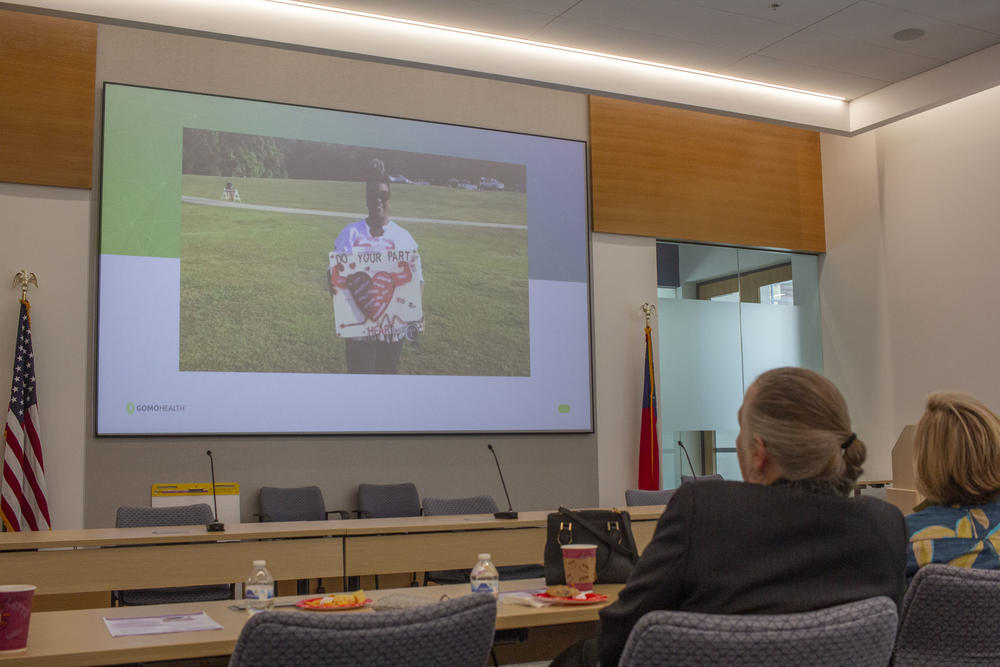
Caption
Pictured in a presentation for Mom's Heart Matters, Alicia Roberts was one of the first patients at Liberty Regional Medical Center who was part of a patern of postpartum moms with cardiac complications. She died in 2020 two years after giving birth.
Credit: Sofi Gratas/GPB News



